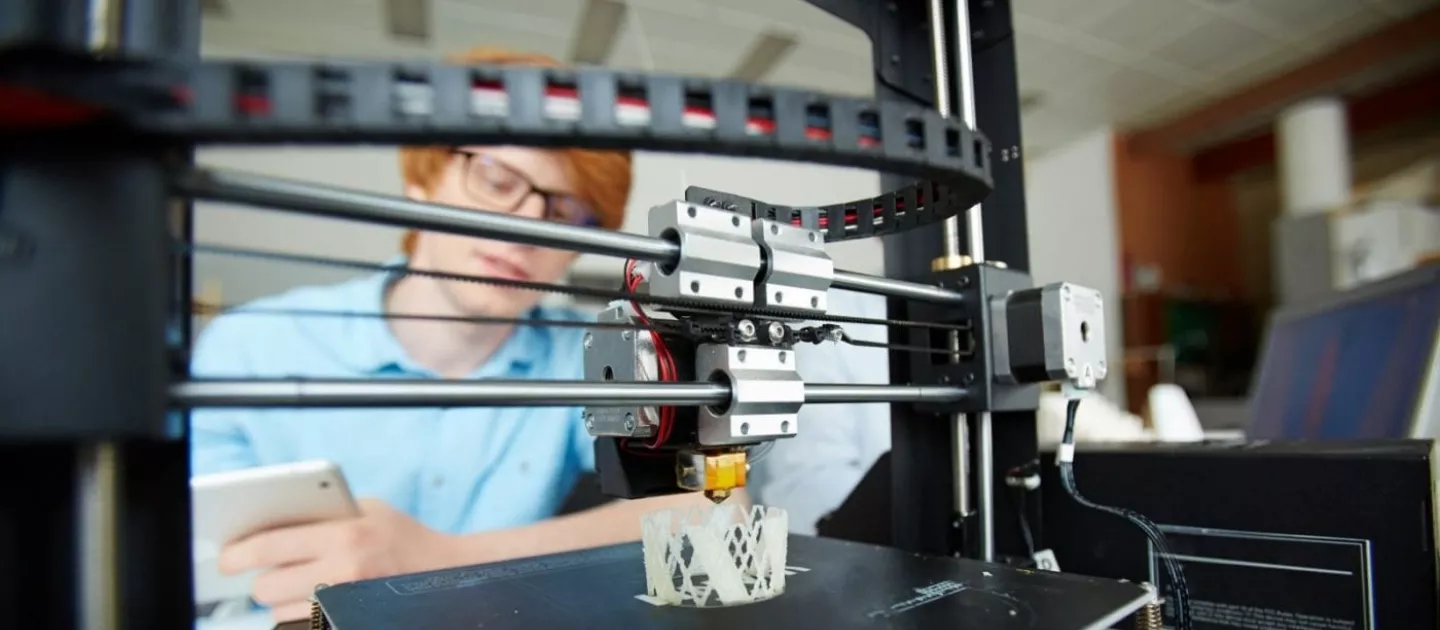
Laboratory Room Numbers and Functions
The department of Electronic and Computer Engineering (ECE) has an extensive range of state of the art fully equipped laboratory facilities and technical resources at its disposal including networked computer laboratories, electronic hardware, control, test and instrumentation facilities. These facilities are fully supported and continually reviewed by a team of highly qualified Technical staff to ensure that they meet the highest international standards and undergo regular refurbishment and equipment replacement.
The facilities available to ECE students are second to none and supplement lectures by extensive practical laboratories in computing, data communications, electronics and robotics which combine to form the ECE department Undergraduate BSC and BE courses plus Postgraduate courses.
The ECE department's state of the art computing facilities includes wireless access points throughout the department, networked computing laboratories with the latest software and Data Communications laboratory incorporating Cisco Academy. This enables ECE students to access online teaching material and the remote submission of coursework.
The ECE department's electronic hardware facilities incorporate up to date test equipment, a Projects laboratory with extensive component store and professional PCB production facilities. The electronic hardware facilities are supported by a mechanical workshop with modern production facilities to enable the construction of electromechanical projects and prototypes for both undergraduate and postgraduate research.
In addition to these general computing and electronic hardware facilities, the department also boasts a number of specialist facilities including an RF anechoic chamber, an electrically screened room plus an ASIC Design laboratory.
All laboratories are equipped with the latest multimedia equipment to enable lectures, tutorials and practical laboratory sessions to take place in state of the art facilities which gives students a unique educational experience. These department facilities are for the use of ECE students and are in addition to University facilities.
A2-011 – Digital Electronics and Analogue Electronics Laboratories
ECE UG students undertaking either digital or analogue electronic modules use the Digital Electronics and Analogue Electronics laboratory. The laboratory can cater for 60 students working at state-of-the-art workstations.
The hardware experiments can also be simulated on PC’s using software packages such as Simetrix.
2 technical officers are permanently assigned to supervise the practical laboratory sessions and to offer technical assistance where required.
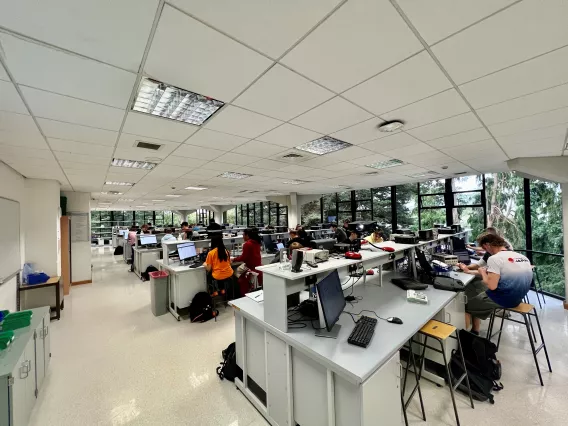
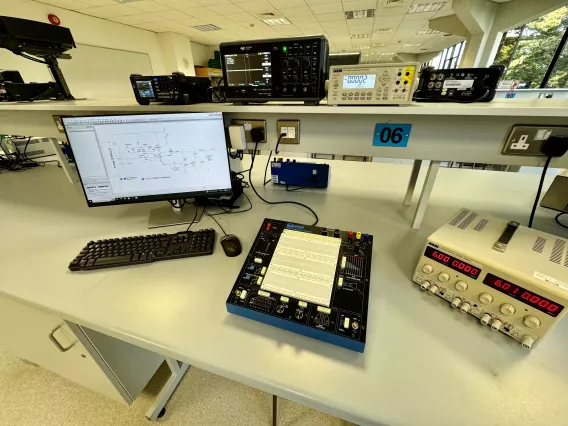
B2-005 – Data Communications
The Data Communications laboratory can cater for up to 32 students. A technical officer is permanently assigned to supervise the practical laboratory sessions and to offer assistance.
The laboratory is used to teach Computer Networking and Telecommunications. It also incorporates a private cloud facility for the ECE department for Cloud Computing, Security, Desktop Virtualization, AI and Machine Learning.
This laboratory is also used for the teaching of the Networking where students are taught how to configure networking equipment for multiple network configurations including network administration, and network design and fault-finding using analysis equipment. Finally, this laboratory is also equipped with a large 80” interactive touchscreen allowing students to interact with the material from their desks.
The laboratory has a private cloud consisting of a Storage Array Network (SAN) and 2 x DELL R720 servers running as ESXi hosts for Desktop virtualization with VMware software as the platform for student projects and labs along with various license servers for Windows, Linux and Cadence. This lab also houses the Airbus CyberRange advanced simulation systems that allows modelling of IT/OT systems to simulate realistic cyber-attack scenarios.
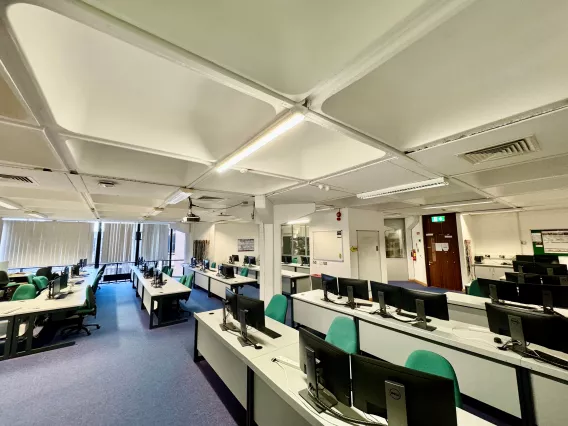
B2-006 – Control, Test and Instrumentation
This laboratory caters for all of the Department’s laboratory-based modules in control, test and instrumentation.
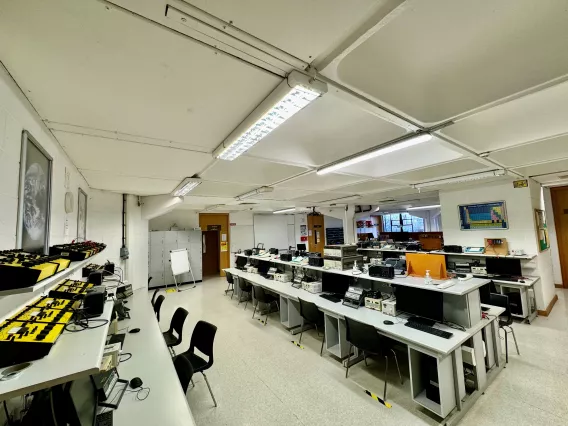
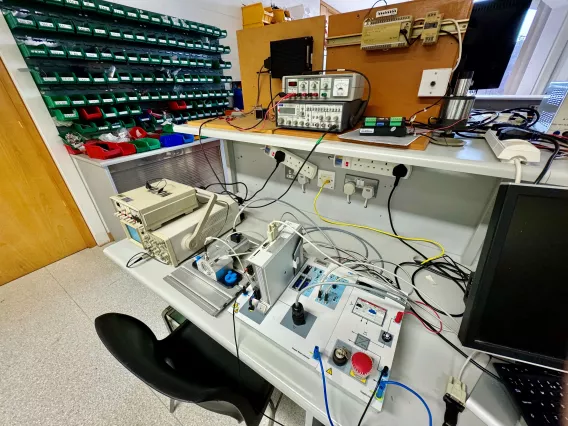
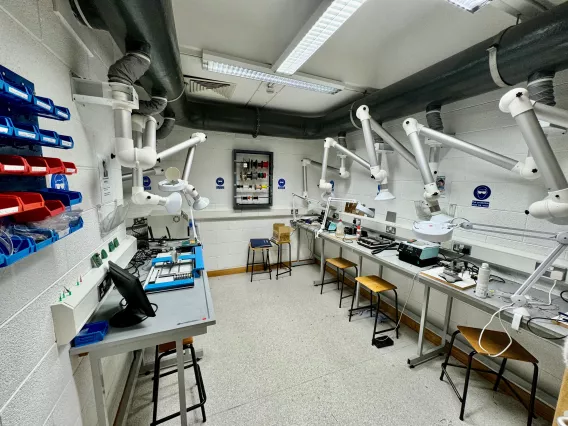
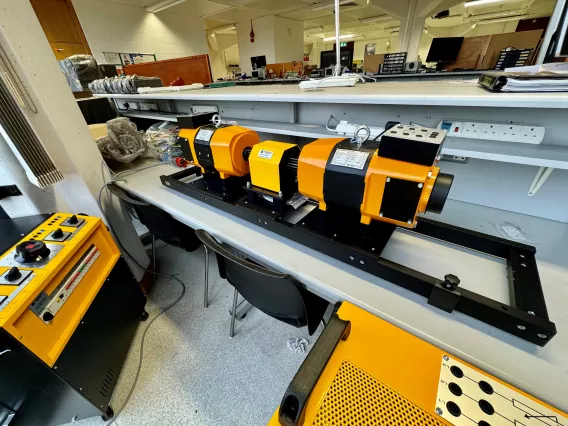
In addition, the Control, Test and Instrumentation laboratory is also equipped with a selection of specialist equipment.
B2008 Project Workshop
The workshop is equipped with a large range of hand and power tools to allow students to undertake a large variety of prototyping project work utilizing timber, metal or plastics. This work is undertaken under the supervision of a senior technical officer.
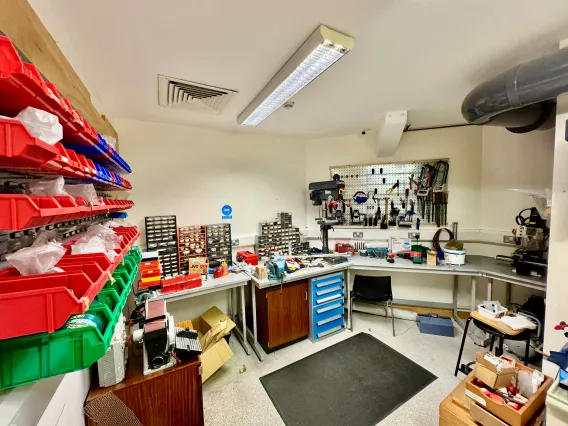
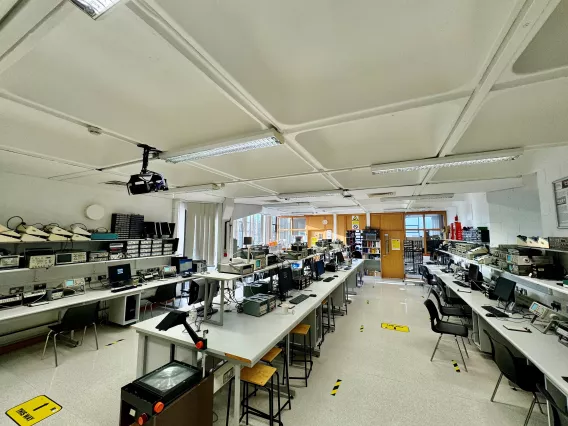
B2-011 – Projects Laboratory Suite and IC Design Lab
The projects laboratory suite is a shared departmental resource. The laboratory area is equipped with a teaching workstation and 16 student workstations. This laboratory is also equipped with multimedia projectors for the presentation of course material.
Each workstation comprises of general electronic equipment and PCs, to enable students to undertake both hardware and software project work, especially final year projects (FYP’s) in both the BE and BSc. programmes.
These facilities are used to teach modules in NVIDIA GPU VDA programming and to facilitate hands-on education of undergraduate and graduate students.
B2-041 - Collaborative Engineering Laboratory
B2-041 is new purpose designed lab which creates a dynamic and inclusive educational space for students. It offers a more flexible and engaging learning experience. The room is arranged to allow students to work in groups around pods. Each pod is equipped with a large screen, which can be controlled by lecturers for instructional purposes or used by students for collaborative projects, using their own devices. The room uses the cutting edge Mersive Solstice key technology to create an interactive space. The room includes an in built AV system with full sound, video and follow camera which can be shared to the adjoining B2-043 laboratory. This allows for concurrent classes of up to 80 students. This laboratory caters for all of the UG computing requirements of ECE course work.
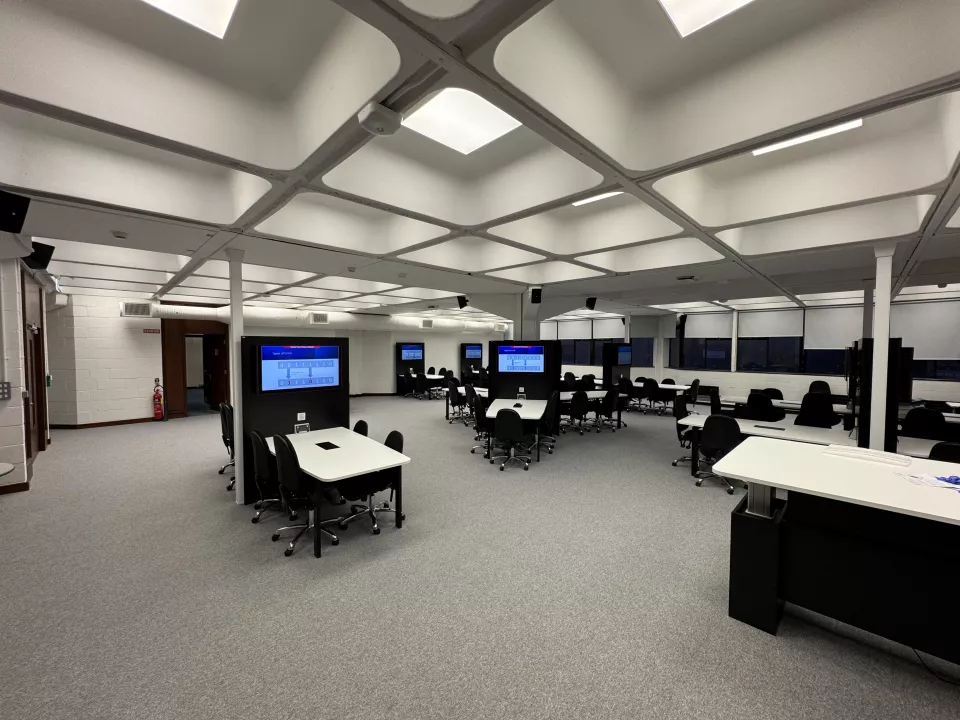
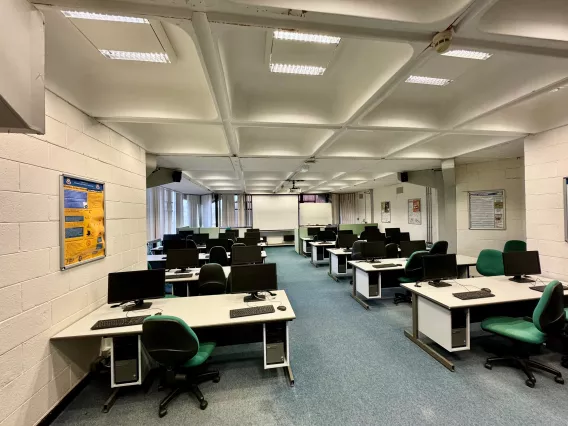
B2-043 – UG Computing Suite
B2-043 is the PC based tutorial laboratory for the various computing modules offered within the ECE Department. This laboratory has an audio and video link to B2-041 allowing the room to facilitate concurrent classes of up to 80 students.
This PC Laboratory caters for all the UG computing requirements of ECE course work and are equipped with Dell PCs plus multimedia projectors for the presentation of course material.
B2-022 – 3D Printing Room
The 3D Printing Room is there to provide students with the needed resources to produce physical prototypes to allow them to complete parts for projects quickly. This is specifically important for students completing final year projects.
The laboratory is equipped with numerous desktop mounted 3D printers. There is also a printer with 3DPrintMill features which allows for infinite length and bulk printing to save time in printing for multiple parts.
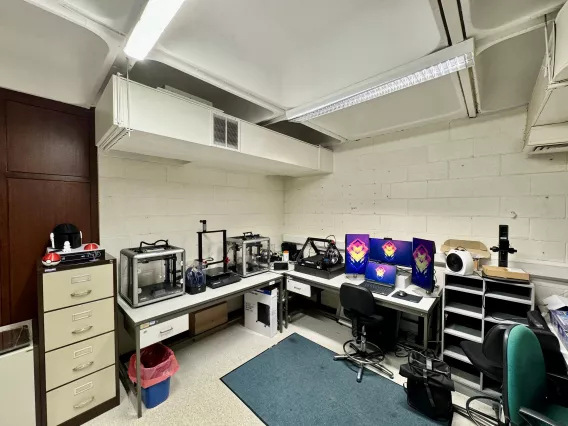
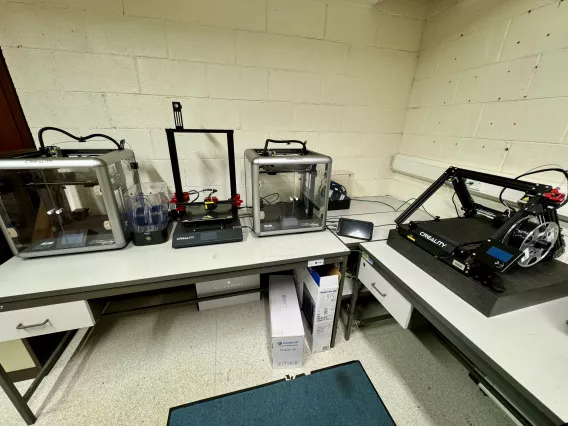
C2-061 - Student Support Centre
This laboratory was set up as a learning resource centre for all of the students in the Department of Electronic and Computer Engineering. It provides the following services: peer-supported learning group (PSLG) sessions, training sessions on study skills, and a PC skills laboratory with networked PCs. The centre is supervised and open at specified times.
